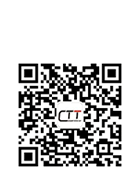In December 2024, the U.S. Food and Drug Administration (FDA) issued a warning letter to cookware retailers and distributors. In the letter, it was reported that some imported cookware products made from aluminum, brass, and aluminum alloys known as Hindalium/Hindolium or Indalium/Indolium demonstrated the potential to leach lead when tested under conditions designed to mimic their use in contact with food, according to information provided to the FDA by the Public Health Department of Seattle and King County (PHSKC) in Washington State. The FDA indicates that this cookware, which is at risk of lead leaching, should not be distributed or sold in the U.S. market.
In the letter, the FDA urged retailers and distributors of cookware products made from aluminum, brass, and aluminum alloys known as Hindalium/Hindolium or Indalium/Indolium to take the necessary steps to confirm that such products do not leach lead into food. Various testing methods for leachable lead are available, or use the FDA’s lead leach testing protocol, “Elemental Analysis Manual (EAM) Method 4.6 Inductively Coupled Plasma Optical Emission Spectrometric Determination of Cadmium and Lead Extracted from Ceramic Foodware”. To modify for cookware, instead of a 24-hour extraction at 22 °C ± 2 °C, the extraction conditions include a 2-hour boil followed by cooling and holding at room temperature for a total of 24 hours. All other method details remain the same.
CTT proposal
CTT recommends that cookware products made from materials aluminum, brass, and aluminum alloys undergo compliance testing for lead leachability before being exported to the U.S. market to mitigate associated risks. CTT can provide enterprises with one-stop comprehensive solutions for consulting, testing and training. For more detailed information, please contact us.
Links:https://www.fda.gov/food/environmental-contaminants-food/letter-retailers-and-distributors-cookware
